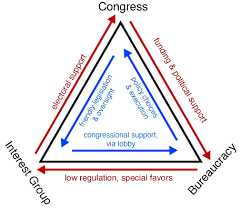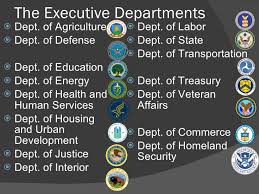
AP Gov Presidency, Bureaucracy, Judiciary Test Review
Assessment
•
Jennifer Hall
•
History
•
11th - 12th Grade
•
121 plays
•
Medium
Improve your activity
Higher order questions
Match
•
Reorder
•
Categorization
.svg)
actions
Add similar questions
Add answer explanations
Translate quiz
Tag questions with standards
More options
70 questions
Show answers
1.
Multiple Choice
A Supreme Court that demonstrates a willingness to change public policy and alter judicial precedent is said to be engaging in
judicial activism
due process
judicial restraint
ex post facto lawmaking
judicial review
2.
Multiple Choice
A writ of certiorari from the Supreme Court indicates that the Court
will review a lower court decision
has rendered a decision on a case
has decided not to hear an appeal
will recess until the end of the calendar year
plans to overturn one of its previous rulings
3.
Multiple Choice
Supreme Court approval
voter approval
Senate approval
Congressional approval
4.
Multiple Choice
Nominees to the United States Supreme Court must be confirmed by
the President
C) the House
D) the Senate
E) both the House and the Senate
5.
Multiple Choice
request a congressional oversight hearing
appoint people to head an agency who share the presidentʹs goals and strategies
influence an agency’s recommended budget
issue executive orders or more informal requests
6.
Multiple Choice
a constitutional right to privacy necessitated making contraceptives legal
abortions could be performed only during the first twelve weeks of pregnancy
the United States Constitution implies a right to privacy and thus made abortion legal
a husband is allowed to veto his wife's decision to have an abortion
7.
Multiple Choice
override presidential vetoes
hold public hearings before confirming judicial appointees
exercise some control over executive agencies
seek judicial opinioni on the constitutionality of pending legislation
8.
Multiple Choice
modern presidents often try to avoid legislative checks and balances on their authority
the executive branch has become too large and bureaucratic
presidents have less power in handling foreign policy than in handling domestic policy
the courts have few means of limiting presidential power
9.
Multiple Choice
pressing for changes in high profile public policies
lobbying members of Congress to make small changes in existing policy
using the judiciary to invalidate federal legislation
running candidates for office
10.
Multiple Choice
four senators agree to a cloture motion
Congress adjourns its session within four days of submitting a bill to the president and the president does not act
four states request a writ of certiorari
at least four justices on the Supreme Court agree that a case should be put on the Court's docket
11.
Multiple Choice
impeaching the vice president and cabinet secretaries
refusing to act on a Supreme Court nomination in the president's last year
overriding a veto with a 3/4 vote in both houses
ratifying treaties with a 2/3 vote in the Senate
12.
Multiple Choice
House Judiciary
Senate Judiciary
House Rules
Senate Appropriations
13.
Multiple Choice
A vote by three Supreme Court justices
A court decision that conflicts with precedent
A court of appeals decision that conflicts with another court of appeals decision
Inconsistencies between courts of different states
14.
Multiple Choice
Give greater protection to the accused
Expand civil rights
Act as a watchdog over the other branches of government
Increase the power of the federal government
15.
Multiple Choice
Create a new precedent
Decease the power of the federal government
Decrease the power of the state governments
Uphold precedent
16.
Multiple Choice
Strict construction
Judicial Activism
Conservatism
Constitutionalism
17.
Multiple Choice
The federal courts have jurisdiction over all of the following cases EXCEPT
Civil suits between citizens of different states in which the amount exceeds $75,000
Criminal cases involving violations of laws passed by Congress
State appeals cases in which the defendant alleges his or her constitutional rights were violated
Prosecutions under state criminal law
18.
Multiple Choice
The court is exclusively a court of appellate jurisdiction
The court’s jurisdiction is mostly appellate, but it had original jurisdiction in a few specified types of cases
The court is exclusively a court of original jurisdiction
Most of the Court’s cases come directly from trial courts
19.
Multiple Choice
Senatorial courtesy is
the custom of the Supreme Court sharing its docket with the Senate Judiciary Committee before it is made
a tradition where by nominees for federal judgeships must meet the approval of senators of the president's party from the state which the nominee will serve
the tradition of the full Senate approving all judicial nominees who win a majority vote in the Judiciary Committee
the practice of the Senate filling judicial vacancies with judges who share the same judicial philosophy as their most immediate predecessor
the tradition of the vice president hosting a formal reception to introduce Supreme Court nominees to members of the Senate.
20.
Multiple Choice
Which of the following is true about the vast majority of cases decided by the Supreme Court?
The are decided by unanimous decision
the decisions tend to significantly alter current policy
the tend to reverse the decisions of the lower courts
they result in the payout of larger damage awards than decisions rendered by lower courts
they are decided based on how similar past cases have been decided
21.
Multiple Choice
One major weakness of federal courts as policymakers is that
judges are term-limited, which affects their ability to implement their decisions.
lower courts are not required to follow the decisions of superior courts
the courts must rely on other institutions to implement their decisions.
they are shielded from the pressures of electoral policies.
courts tend to lack legitimacy in the eyes of most citizens.
22.
Multiple Choice
This is a request for the Supreme Court to order up the records from a lower court to review the case
in forma pauperis
concurrent opinion
writ of certiorari
stare decisis
writ of habeas corpus
23.
Multiple Choice
It establishes the jurisdiction of federal courts in litigation involving two or more states.
It is the principle that affirms that courts are bound by prior decisions.
It is the policy by which the Supreme Court decides which appellate cases it will hear.
It holds high courts responsible for determining the constitutionality of proposed legislation before it becomes law.
24.
Multiple Choice
Four senators agree to a cloture motion.
Congress adjourns its session within four days of submitting a bill to the president, and the president does not act.
Four states request a writ of certiorari.
At least four justices on the Supreme Court agree that a case should be put on the Court’s docket.
25.
Multiple Choice
Courts of appeal must decide cases appealed to it from the lower courts, while the Supreme Court can choose its cases and hears relatively few each year.
Courts of appeal usually have jurisdiction over cases appealed from state supreme courts.
There are more judges on the courts of appeal than on the Supreme Court, so they can overrule the Supreme Court’s decisions.
According to the Constitution, rulings by the courts of appeal have more significance than Supreme Court rulings.
26.
Multiple Choice
The age of the nominee
The state in which the nominee was born
The political party of the nominee
The number of years the nominee has served as a state judge
27.
Multiple Choice
A lawsuit between the United States and one of the states
The kidnap and murder of a federal official
Any case appealed from a United States district court
A case that presents a question of interpreting a federal constitutional law
28.
Multiple Choice
The Court musters public opinion in favor of its decisions.
The Court threatens to call a constitutional convention in order to increase its power.
The Court can only hope that respect for the law and the Court will be enough to create compliance.
The Court has sweeping powers of enforcement spelled out in the Constitution
29.
Multiple Choice
inconsistent with public opinion
intended to bolster public support for its rulings
less consistent with public opinion than are the actions of the president or Congress
consistent with public opinion
30.
Multiple Choice
writ of habeas corpus
writ of certiorari
an injunction
standing
31.
Multiple Choice
Article 1
Article 2
Article 3
Article 4
32.
Multiple Choice
An informal and relatively open network of public officials, think tanks, political pundits and lobbyists who have a common interest in a given area and who are brought together by a proposed policy in that area
the relatively new television stations that specialize in political coverage
two or more agencies that share regulatory power when a policy or regulation affects more than one regulatory body
the same as ʺiron trianglesʺ
33.
Multiple Choice
independent executive agencies
independent regulatory agencies
government corporations
cabinet departments
34.
Multiple Choice
an iron triangle
a conference committee
a regulatory agency
dual federalism
35.
Multiple Choice
Pendleton Act of 1883
National Industrial Recovery Act
Fair Labor Standards Act of 1961
Truman Doctrine
36.
Multiple Choice
They tend to have larger budgets than cabinet departments.
They tend to be freer from presidential control than are cabinet departments.
They are insulated from contact with interest groups.
They are directly supervised by cabinet departments.
37.
Multiple Choice
The Hatch Act
The Budget and Impoundment Act
The War Powers Act
The Judiciary Act
38.
Multiple Choice
pass laws.
decide how much money will be appropriated for agency programs.
approve an agency's appointees.
order audits of agency activities.
39.
Multiple Choice
implement and regulate government policies
compete with the private sector for monopoly power
protect the interests of their constituencies
advise the president and Cabinet on internal affairs.
40.
Multiple Choice
a worker who does not accomplish his or her tasks by the end of the day.
someone who brings public attention to gross governmental inefficiency or illegal action.
a worker hired in excess of the labor requirements of an agency.
someone who leaks contents of a presidential speech to the press before it is given.
41.
Multiple Choice
Which of the following results from an iron triangle relationship?
Each policy being made independently from each other
Policies being made that are contradictory from others
A lack of an integrated, coherent approach to broad policy concerns
A cooperative relationship among special interest group, bureaucratic agency and Congress
A hostile relationship among the bureaucratic agencies making policy
42.
Multiple Choice
regulatory agency
independent commission
government corporation
NONE OF THE ABOVE
43.
Multiple Choice
The Department of Homeland Security
The Department of Veterans Affairs
The Department of Education
The Department of Energy
44.
Multiple Choice
Department of State
Federal Communications Commission (FCC)
Department of Agriculture
Drug Enforcement Agency
45.
Multiple Choice
Implementing federal unemployment policy
Preparing the budget
Appropriating funds for the budget
Approving the budget
46.
Multiple Choice
The Hatch Act
The Budget and Impoundment Act
The War Powers Act
The Judiciary Act
47.
Multiple Choice
The cluster of presidential staff agencies that help the president carry out his responsibilities.
Executive Office of the president
Cabinet
Executive agencies
Government corporations
48.
Multiple Choice
Advisory council for the president consisting of the heads of the executive departments, the vice president, and a few other officials selected be the president.
Executive Office of the President
Cabinet
Executive agencies
49.
Multiple Choice
The head of the White House staff
Chief of Staff
Secretary of Staff
Secretary of the White House
White House Press Secretary
50.
Multiple Choice
oversight of the executive branch.
developing laws for review by Congress.
bringing cases for trial before the Supreme Court.
policy implementation.
51.
Multiple Choice
executing the authoritative decisions of Congress, the president, and the courts.
regulating the distribution of funds to individuals and corporations.
delegating legislative authority to smaller operating units of the bureaucracy.
all of the above.
52.
Multiple Choice
The Hatch Act
The Pendleton Act
The Morrill Act
The Progressive Act
53.
Multiple Choice
The extent to which appointed bureaucrats can choose courses of action and make policies not spelled out by laws.
Bureaucracy
laissez-faire
discretionary authority
competitive service
54.
Multiple Choice
issue network
iron triangle
red tape
name request job
55.
Multiple Choice
issue network
name request job
red tape
bureaucracy
56.
Multiple Choice
judicial activism
due process of law
judicial restraint
judicial review
57.
Multiple Choice
Criminal Case
Federal Case
Civil Case
Double Jeopardy C
58.
Multiple Choice
judicial review
writ of certiorari
jurisdiction
stare decisis
59.
Multiple Choice
District court
US Court of Appeals
Supreme Court
60.
Multiple Choice
a form of inside lobbying that attempts to influence the Court’s agenda
A form of outside lobbying that attempts to influence the Court’s decisions
A form of outside lobbying that attempts to influence the Court’s reputation
A form of inside lobbying that attempts to influence the Courts decisions
61.
Multiple Choice
majority opinion
prevailing opinion
disenting opinion
fina opinion
62.
Multiple Choice
ask the Court to hear the case again.
send the case back to a lower court.
write a dissenting opinion.
file an amicus curiae brief.
63.
Multiple Choice
Senate approving judges only if they belong to the same party that is in control of the Senate.
practice of allowing senators to have the exclusive right to nominate candidates for the federal district courts in their state.
Senate's deferring to the president and routinely approving his or her nominees.
practice of allowing a senator to veto a judicial appointment for federal district courts in his or her state.
64.
Multiple Choice
judicial restraint.
judicial activism.
habeas corpus.
the rule of four.
65.
Multiple Choice
Solicitor General
Attorney General
Surgeon General
Lawyer General
66.
Multiple Choice

Steel Union
Coalition Agreement
Iron Triangle
Solid Partnership
67.
Multiple Choice

NASA
NSA
USPS
EPA
68.
Multiple Choice
merit based system
Pendleton Act
patronage
appropriations
69.
Multiple Choice
fire civil servants
defund programs
impeach the president
declare bureaucratic actions unconstitutional
70.
Multiple Choice
special interests
congressional committees
issue networks
NONE OF THE ABOVE

Explore this activity with a free account
Find a similar activity
Create activity tailored to your needs using
.svg)

Judicial Branch
•
12th Grade

Types of Law
•
7th Grade

Judicial Branch
•
5th - 8th Grade

Judicial Branch
•
9th - 10th Grade

Salem Witch Trials
•
8th - 9th Grade

Road to Revolution
•
7th Grade

Judicial Branch
•
6th - 8th Grade

European Explorers
•
5th Grade